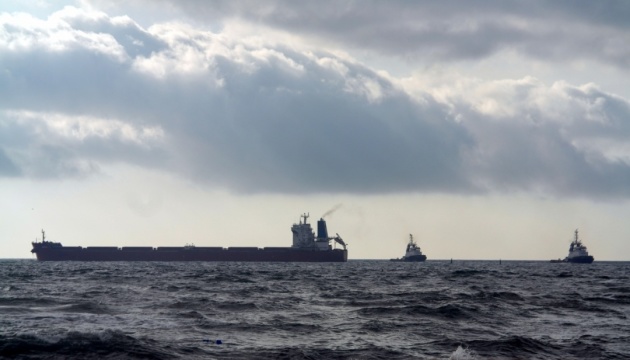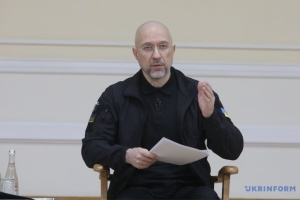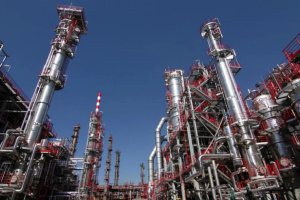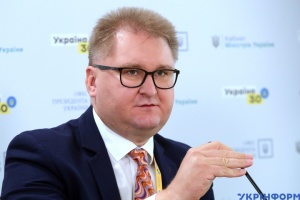
Expert: Russia's "tricks" within grain deal fail
Pavlo Lakiychuk, head of security projects at the Center for Global Studies, Strategy 21, said this on the air of Ukrainian Radio, Ukrinform reports.
The expert noted that Russia's goal in signing this agreement was to receive political and economic dividends by formally allowing the supply of Ukrainian grain to African states.
"In exchange for signing the grain deal, Russia wanted Türkiye to resolve with Ukraine the issue of exporting Russian ammonia through the Tolyatti-Odesa-Black Sea ammonia pipeline, when ships are loaded at the Odesa Port Plant. Russia also wanted sanctions on the export of Russian mineral fertilizers to be lifted. But all these Russia's tricks failed. Putin and his team realized that the agreement does not work the way they wanted it to. It works, but the mechanisms that they put there as additional 'mines' do not work," Lakiychuk said.
According to him, if Russia withdraws from the agreement, the transit of maritime traffic to Ukrainian ports should be guaranteed by the Turkish Navy or other states, which both the Turkish side and the UN are ready to involve in this operation. "They may decide to use a peacekeeping contingent, for example, from NATO's standing operational force in the Mediterranean," Lakiychuk stated.
In his opinion, the Turkish Navy is much more powerful than the Russian one. So, Ankara has every opportunity to ensure peace in the Black Sea while transporting Ukrainian grain to Africa and Asia.
"The Turkish Navy has become very strong over the past 30 years. Now, although Türkiye does not concentrate warships on a permanent basis in the Black Sea, they have a powerful navy that far exceeds the capabilities of the Russian Black Sea Fleet," the expert said.
In his words, the main Turkish naval base is in Gölcük, in the Gulf of İzmir, almost near the Bosphorus. "Ships from Gölcük can enter the Black Sea at any time, it will take an hour, 2-3 at most, and they will be there. Türkiye has a number of mothballed bases for naval operations in the Black Sea."
On the other hand, the Turkish side controls the Black Sea straits based on the Montreux Convention Regarding the Regime of the Straits. "Here a lot depends on Türkiye if the UN or any other international organization decides to engage other countries' navies to escort Black Sea Grain Initiative ships," the expert noted.
In his opinion, it is unlikely that Russians will dare to attack civilian vessels flying non-Ukrainian flags in neutral waters, as this would mean the conflict would spread to those players that Russia did not intend to face.
"If Türkiye provides guarantees for the grain corridor, it will be a tough step. Türkiye knows how to act tough, including against Russia," the expert emphasized.
In this regard, he recalled the situation in Syria in 2018, when the Turkish military shot down a Russian bomber. "It was a signal to Putin, and he understood it. For a month or two, Russians were shouting that they would not buy Turkish oranges and tomatoes. But everything ended up as Ankara expected," Lakiychuk said.
He added that, in addition to Türkiye, in the territorial waters of Ukraine, the safety of ships can be guaranteed by the Neptune and Harpoon anti-ship missile systems, which are in service with Ukraine and have already demonstrated their capability, "including against Russian cruiser Moskva."
As reported, the grain agreement was signed in July last year with the participation of Ukraine, Türkiye, and the UN, as well as separately by Türkiye, the UN, and Russia. The agreement guarantees the safe passage of ships carrying Ukrainian grain. Its observance is ensured by the Joint Coordination Center in Istanbul, which includes representatives of all parties.
Russia threatens to withdraw from the grain deal if it fails to resume pumping ammonia through the Tolyatti-Odesa pipeline and partially lift restrictions on its exports.
Ukrainian government has stated that the Russian side is actually blocking the grain initiative. Russia openly sabotages ship inspections. This has reduced the grain corridor's capacity to less than 20% of its potential.
Russia confirmed its participation in the agreement at the end of May, extending it for 60 days, until July 17.




